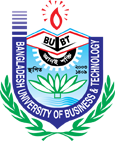Conferences, Seminars, and Workshops are considered as important elements to enrich the dimensions of knowledge and to create new branches of knowledge. Besides, the development and arrangement of Conferences, Seminars, Workshops providing an opportunity to develop a parallel approach to understand the world economy and thus scholars from different backgrounds get the opportunity to flourish their knowledge. To uphold and to expand the knowledge, Department of Economics, Bangladesh University of Business and Technology (BUBT), organizes different conferences, seminars, and workshops on a regular basis on contemporary economic issues.
Today the Department of Economics, Bangladesh University of Business and Technology (BUBT) has organized a seminar on ‘The Economics of Child Under-Nutrition in Bangladesh’ at BUBT campus. Mr. M. Mahmud Khan, PhD Professor and Department Head, Department of Health Policy and Management, University of Georgia, Athens, USA and John A. Drew Professor in Healthcare Administration, USA, was the keynote speaker of the seminar.
Mr. Khan has mentioned various issues with relation to nutrition in Bangladesh. The nutritional status is actually a three-fold calculation: a) height-for-age (stunting), b) weight-for-height (wasting), and c) weight-for-age (underweight). In 2020, according to the World Bank development indicators, 66 countries had a child stunting rate (the percent of under-five children significantly shorter for their age) exceeding 25%. Similarly, other measures of child undernutrition, such as being underweight and wasting, have remained quite high. In Bangladesh, 23.6% of children were stunted, 11% were wasted and 22.3% were underweight in 2022. In the year 1999-2000, these rates were 51.1%, 12.3% and 41.7% respectively. The stunning rate has declined by more than 50% over the last two decades, but the waste rate has not improved significantly. The infant mortality rate also declined from about 66 per 1000 live births in 1999-2000 to 25 in 2022. The child mortality rate declined from 94 per 1000 live births in 1999-2000 to 31 in 2022. Although the improvements are impressive, the undernutrition rates are still unacceptably high. More efforts are needed to combat child undernutrition (as well as the new increasing trend of “over nutrition” or “obesity”).
Mr. Khan has found by research that a 5% sustained increase in GNI per capita per year would reduce the stunting rate to about 15% by 2050 from the average rate of 29% in 2020. Relying on economic growth (and its associated covariates) alone is not an option, if we would like to reduce the stunting rate below 5% within a decade.
The seminar started by the welcome speech of Professor Dr. Syed Masud Husain, Professor of Accounting and Dean, Faculty of Business & Social Science, BUBT. Professor Dr. Muhammed Fayyaz Khan, Vice Chancellor, BUBT made some concluding remarks. Mr. Sirajul Islam, the Chairman, Department of Economics, BUBT ended up the seminar with vote of thanks. Professor Md. Abu Saleh, Member, BUBT Trust & Advisor, BUBT; Professor Dr. Md. Ali Noor, Pro-Vice Chancellor, BUBT; Professor Mian Lutfar Rahman, Member, BUBT Trust; Professor Santi Narayan Ghosh, Director, IQAC & BRIC; Professor Dr. Syed Sarfaraj Hamid, Dean, Faculty of Law, BUBT; Dr. Md. Harun-or-Rashid, Registrar, BUBT; Dr. Md. Anwar Hossain, Professor & Chairman, Department of EEE, BUBT; the other faculty members and the students were also present at the seminar.
0n 30th June, 2019, the Economics Department of BUBT arranged a seminar titled 'A Review on Proposed Budget of FY 2019-20: Prospects and Challenges". Prof Dr Mustafizur Rahman, Distinguished Fellow, Center for Policy Dialogue (CPD), made a review on budget as chief guest. He said that budget allocation in education, health and agriculture sectors is not sufficient and it should be more logical and need based. Though it is a deficit budget it would be implementable if the government ensures transparency, accountability and reduce the cost of nonperforming loans and reduces indirect taxes. The prominent economist also said that the government must remove the obstacles of distributing funds among young entrepreneurs and should show zero tolerance on bank defaulters. Budget alone cannot address these issues we need others policies as well. The government should see that Bangladesh is developing but other countries are developing fast. Prof Dr Shafique Ahmed Siddique, Chairman of BUBT Trust, also spoke as special guest. He said that we should avoid the tendency of tax evasion. It will hamper our economic growth. Prof Md Abu Saleh, Vice-Chancellor of BUBT presided over the session. He said that we should not except that the budget will be 100 percent accurate. Assistant Prof Dr Md Mahmudul Hassan presented a paper at the seminar. Dr Syed Masud Husain, Dean. Faculty of Business and of Social Sciences delivered the welcome speech and Sirajul Islam, Chairman, Department of Economics gave a vote of thanks. The seminar was organized by the cooperation of BUBT Economics Club.









